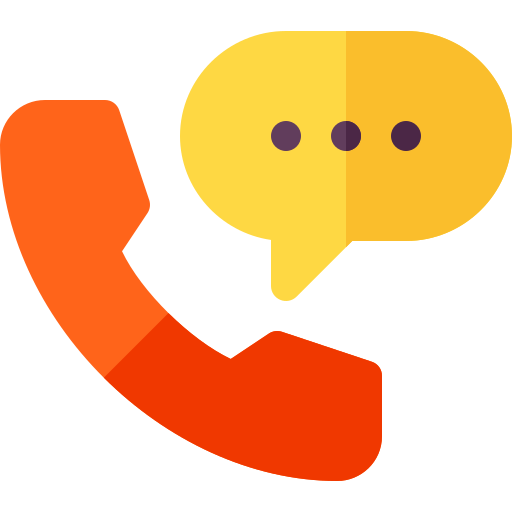
1800 934 265
AQF Level
Course Duration
Mode of Delivery
The importance of early childhood care and education in Australia is evident. Not only do these programs provide children with a strong foundation, but they also have a positive impact on the economy. Pursue Certificate III in Early Childhood Education and Care to upskill your role as an educator if you are working in regulated children’s education and care services in Australia. The course will help you with an overall development in areas like:
After successfully completing the course, you will acquire the following skills:
There is a huge requirement for educators in early childhood education and care in Australia in the coming years.
IHNA (Institute of Health and Nursing Australia) is trusted by more than 30,000+ students and has been committed to providing excellence in education and training to meet the needs of the community since 2007.
The blended delivery mode consists of online theory with face-to-face simulation-based training and professional experience placement (PEP) at relevant workplaces.
After the successful completion of the course the candidates may gain employment as Early childhood educators in various places such as:
“A convenient way to build your employability skills and advance your career”
17 units are required for award of this qualification including:
CHCECE055
Meet legal and ethical obligations in Children’s education and care
CHCECE056
Work effectively in children’s education and care
CHCECE032
Nurture babies and toddlers
CHCECE037
Support children to connect with the natural environment
CHCECE038
Observe children to inform practice
HLTWHS001
Participate in workplace health and safety
CHCECE054
Encourage understanding of Aboriginal Torres Strait Islander Peoples’ cultures
CHCPRT001
Identify and respond to children and young people at risk
CHCECE030
Support inclusion and diversity
CHCECE031
Support children’s health, safety, and wellbeing
CHCECE033
Develop positive and respectful relationships with children
CHCECE034
Use an approved learning framework to guide practice
CHCECE035
Support the holistic learning and development of children
CHCECE036
Provide experiences to support children’s play and learning
HLTAID012
Provide First Aid in an education and care setting
CHCDIV001
Work with diverse people
CHCPRP003
Reflect and improve own professional practice
Admission requirements
There are no mandatory entry requirements for this qualification, however following IHNA Online admission criteria will be applicable:
17 years and 03 months of age and above at the time of commencement of the course
Successful completion of an Australian Year 10 qualification or equivalent.
*Aboriginal and Torres Strait Islanders’ students are encouraged to apply.
There are no pre-requisites or any other training package entry requirements for this course.
Course Fees for Full-Fee Paying Students
Was $3,499 Now $2,499*
*Save $1,000 on this course with IHNA Online!
IHNA Online has defined entry requirements for courses under its mandate, as outlined by its ‘Application and Enrolment Procedure for Courses,’ to ensure that students meet industry standards.
step 1
Application: Submit your online application by clicking “Enrol Now”.
step 2
LLN: You are required to complete an online LLN test.
step 3
PTR: Once you’ve met IHNA’s eligibility criteria, you will be contacted by an admission consultant, followed by a pre-training review
step 4
Fees: Login credentials, user guide, conditional offer letter and invoice will be sent to your email, and pay your tuition fees.
step 5
Confirmation of Admission: We will issue a confirmation of admission once the enrolment fee has been received.
step 6
Orientation: We will send you the details of the online orientation.
step 7
Access: Once the orientation is completed, explore the learning resources and start learning on your learning platform.
Students must submit a portfolio of past evidence, which may include third-party assessments, and partaking in an interview procedure. They can further have their prior learning and work experiences acknowledged in this certification. A practical demonstration of the portfolio presented by the students may also be used to evaluate student’s competencies and expertise, which will give the educators a clear idea. In addition to this mutual recognition and credit transfer allow students to have their previous formal training recognized.
Credit Transfer is only available for Australian qualifications when a student has completed the units considered necessary for a qualification at another Registered Training Organization.
Any other questions in your mind – let us give you some more clarity with the following FAQs – check below:
1. What is the Minimum requirement to become an early childhood educator?
To become an early childhood educator the starting requirement will be to complete a 4-years Bachelor of Education (Early Childhood) or similar Course from a recognised institution. On the other hand, you also have a choice to complete a 2 to 3 years Diploma or certificate course of Early Childhood Education. For more details you can check
2.What do you study in childcare?
You learn a plethora of concepts and skills in a certified childhood educator course some of the skills include
3. How much is early childhood educators get paid in Australia?
Though there are no fixed numbers but the average educators in Australia is paid around $60,000 per year
01

Adam Gardoll
The staff in my opinion are all supportive and friendly and I am enjoying my studies here.
02

Ashley Hartnett
The facilities are continually improving and the support I have acquired is unlike any other school.
03

Baby Aurora Trijo
The dedication, support and motivation of each staff member is great and enables students like myself to achieve their dream.
04

Christian Pascaran
The Staff/educators were very helpful to students when it came to addressing our problems.
05

Jismy Ouseph
I am really thankful to IHNA which gave me the confident and exposure to my nursing career.
It is always a pleasure to listen to the stories our students say about us! Take a sneak peak at the inspiring stories of our students, which often leave us in tears of intense happiness and give us strength and hope